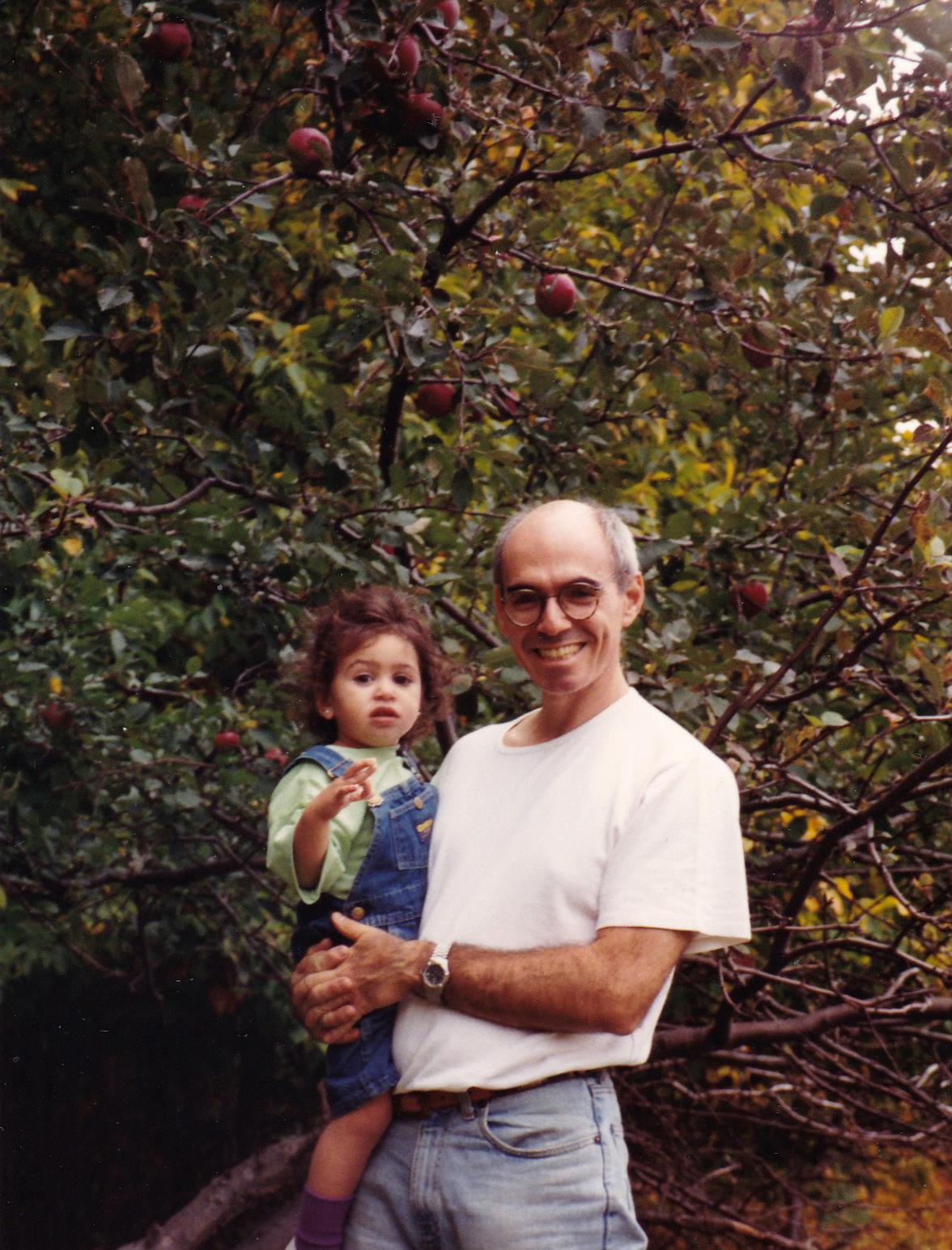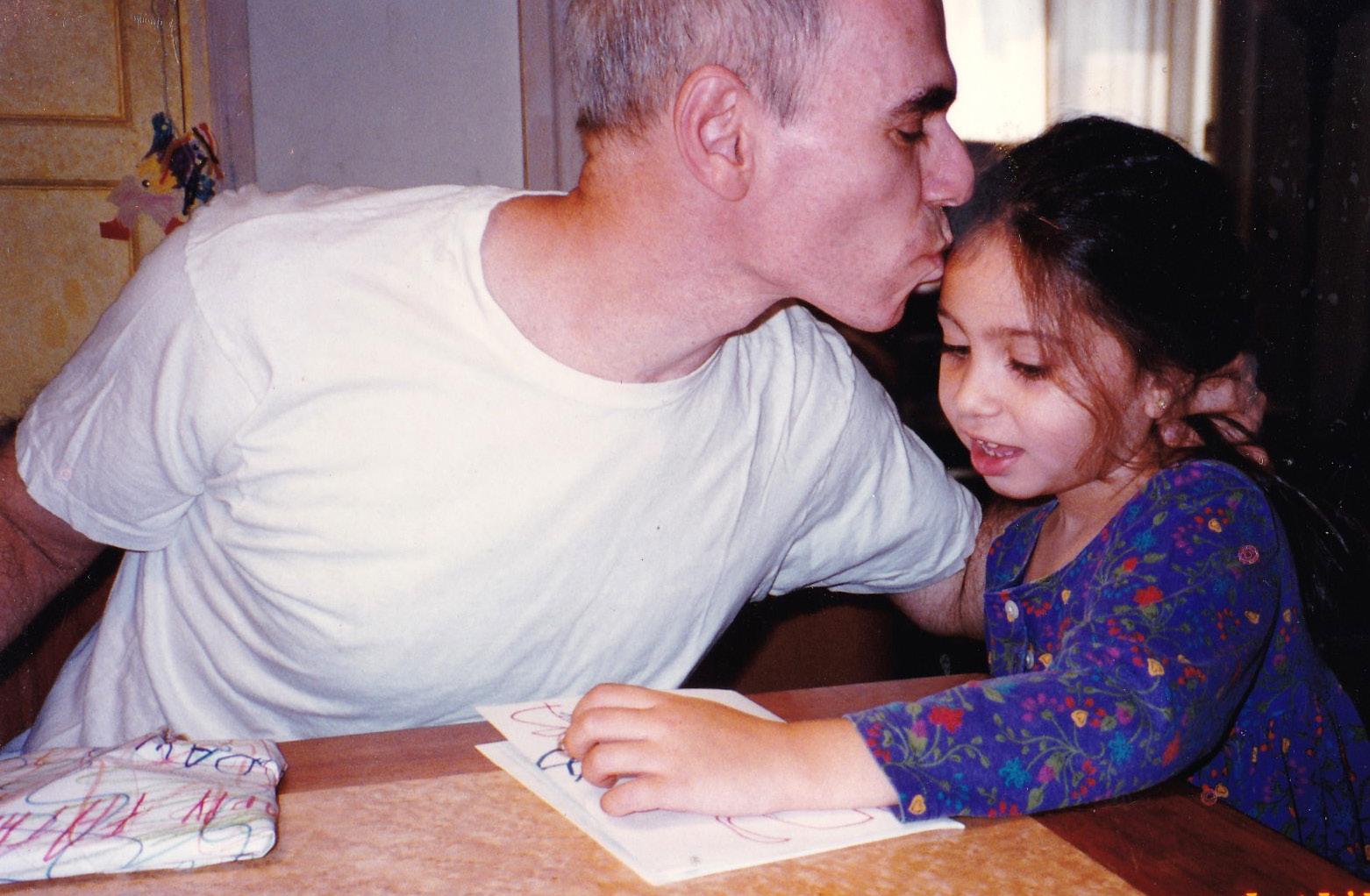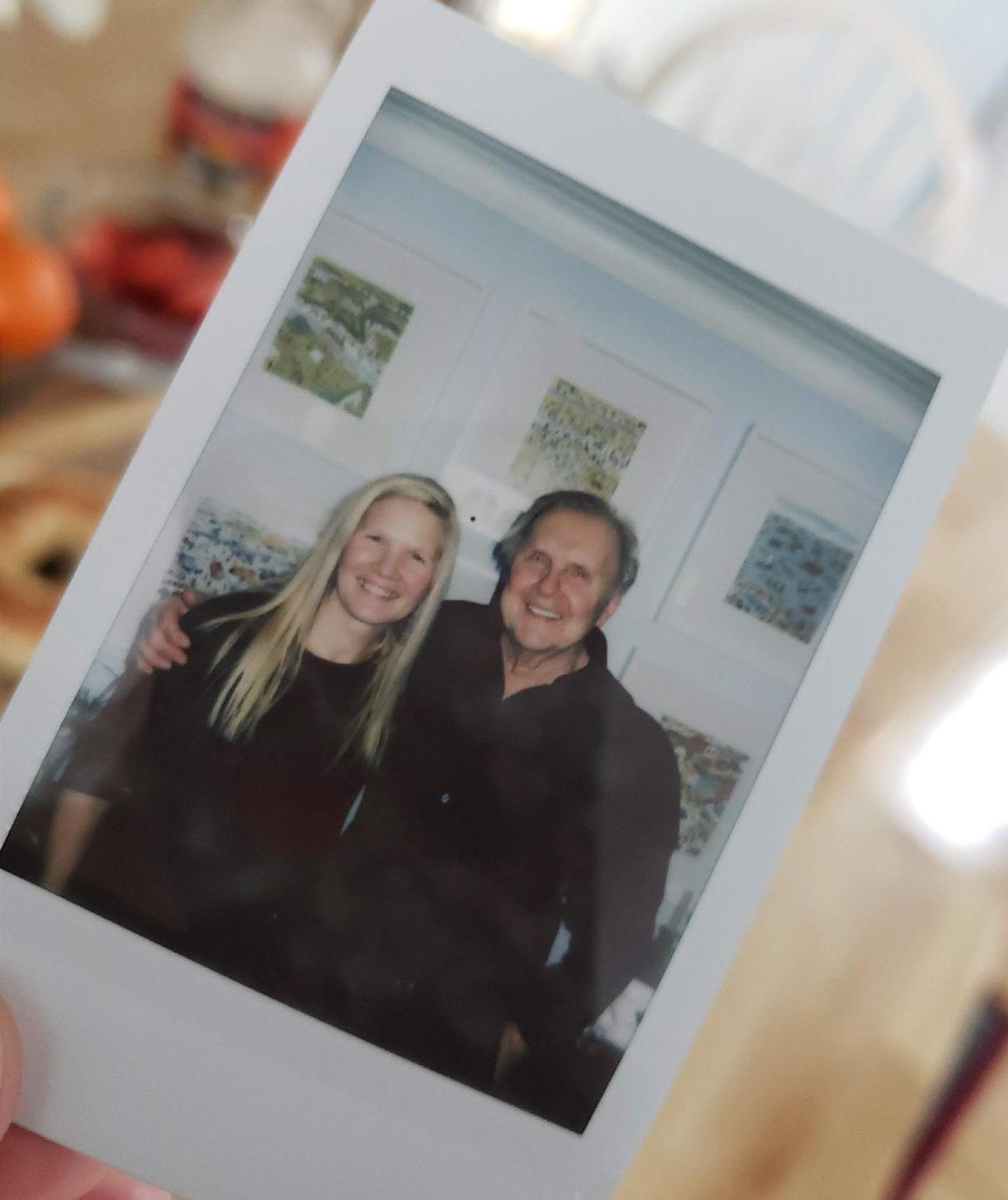
11 minute read
My Dad is My Hero
The Role Models Baby Boomers Need.
Words by Naima Karp
Advertisement
My father is the reason I’m as empowered as I am today. He taught me values of empathy and open-mindedness that range from gender and race to politics and relationships. When you think of the average white man from the 1950s, some negative connotations might come to mind. Baby boomers don’t have the best reputation nowadays, but my dad refuses to be a toxic byproduct of his generation. Instead, he is a glorious exception to it.
Dad’s ancestors were immigrants dating all the way back to Ellis Island, Brooklyn. His own parents were both working when they got married—his father as a ship welder, and his mother as an office worker. Like many men at the time, my grandfather asked my grandmother to quit working after marriage. To soothe his ego, she agreed, and became a multi-talented homemaker, doing everything from upholstering furniture to tailoring clothes.
Beyond this misogyny, toxic masculinity engrained itself in my dad’s childhood through sports. His father taught him how to “take a punch” at the young age of 12, leaving arms full of bruises. There was always a sense of training rather than bonding, which fed into an atmosphere of intimidation. This wasn’t considered abuse back then—it was just another way of becoming a man. Of toughening up. But we know now that this just leads to resentment and the need to prove oneself, which is exactly how it affected my dad.
My father grew up in Queens, N.Y., in a predominantly Jewish neighborhood. His family was Russian Jewish and expected him to marry a Jewish girl, even though they weren’t religious. It was about a fear of social acceptance. My dad is a kind and gentle man, but I’ve never once seen him as fearful. He claims that his parents were liberal but suspicious of change. “They felt that the world wasn’t ready for mixed relationships of any kind—inter-religious or interracial. Of course, with that attitude, you will never contribute to changing the world. They liked Martin Luther King but were scared of Malcolm X.”
Although his dad had a dark side, he introduced my father to his passion: photography. My father never travelled outside of New York City, so the street photography that he shot on his bike let him explore exotic places locally.
He may have been born in a prejudice-charged environment, but my dad never let those values bleed into his own politics or his relationships with his kids. He made a conscious effort to focus on having fun instead of reaching expectations, with the belief that “there is no such thing as tough love—there is only love.” I was raised by him with the mentality that home is a refuge from the external expectations of the world and parents are advocates meant to enhance your voice.
When it comes to the love of his life, there are few couples more inspiring than my parents. Their love lies in the quiet moments, not in the grandiose announcements. I think my father fell for my mother due to their differentness; she could bring him outside of the narrow perspective in which he was raised.
During college, Dad both photographed and participated in the Vietnam War protests. He always considered himself liberal but acknowledges his own privilege. He recently retired, and he has used this time to educate himself on the “hidden history” that wasn’t taught in the schools of the ’50s.

Photography became more present in his life after college, when he worked at a photo store and was eventually introduced to some publishers. Ultimately, he decided to quit his day job and go for his passion full time, and he hustled hard enough to earn a proper living. He had no formal schooling, and lots of learning was done on the job. After I graduated university myself, my dad’s history and nuggets of wisdoms inspired me to leave retail and office jobs and pursue a makeshift career as a freelancer myself. Although my dad inspired many of my career choices, his professional life isn’t what makes him such an impactful role model.
His kindness even manifests itself in his diet. I always thought that he chose to not eat meat solely out of sympathy for our furry friends, but I gained further insight when he commented that “eating meat just hardens people to other forms of violence.” As the Black Lives Matters movement continues to evolve, my dad is having important conversations with his white friends, and fearlessly, as always. While most of his friends support BLM, he’s not scared to have conversations with conservatives, sending emails and sharing opinionated Facebook posts. He understands that silence is just a form of acceptance that promotes biases, and he is vocal about the benefits white people have and what they can do about it.
My dad is proof that white people can and should do better. He was raised to prioritize maintaining appearances and status, as many children of the 1950s were. Fortunately, he learned his own lessons and built a life around his own kind of values—one with much more meaning that I plan to carry on in my own legacy.
Someone Out There

WORDS BY KELLY ZEMNICKIS
Anne Marie has always known she was adopted. Her parents never kept that a secret from her or her sister (who is also adopted). Chatting over Zoom from her home in Calgary, she told me that her parents were always happy to pass on whatever information they had. “I never felt like a black sheep—I was never really searching for anything.” But in her late 20s, Anne Marie decided she wanted to try to find her birth parents. “I told myself it was just for the medical info, [because] I have always felt very connected to my parents,” she pauses for a minute, “But I always yearned to look like someone. I always wondered who I looked like out there!” I confided to Anne Marie that I’ve always felt like I don’t really resemble anyone in the family—whether true or not (I feel as though I’m a blend of everyone)—and we shared a good laugh realizing we’ve grown up wondering the same thing!
What Anne Marie grew up knowing was that she was born in Quebec in 1972 to a woman that gave her up for adoption immediately. “My mom was working in the hospital there as a nurse at the time, and there was a doctor who apparently was connecting women to families looking to adopt. It was a very different process back then. But I started looking for my birth parents before internet and email was a thing, so when I did learn my birth mother had been tracked down, we exchanged letters. And when I got that initial photo of someone who looked like me? That was really amazing.” For whatever the reason, Anne Marie didn’t hear much from her birth mother after that and eventually the letters just stopped. She has no idea why. Even the details she did receive didn’t give her much insight into her birth mother’s situation at the time. “There was an idea that my birth father was a TV producer!” Anne Marie mentions with a laugh, “My mom always thought that she had heard that.” Yet, finding her birth father was never top of mind. “I never thought I’d ever learn who he was, as I had been 100 percent focused on finding out who my birth mother was and where she was from.” In fall 2019, Anne Marie took an AncestryDNA test in the hope of learning a bit more about the woman she knew to be her birth mother. When the results came in, it was her husband Tony who, looking at the results with her, asked, “Who’s that Richard guy? It says he’s a 100 percent match. He’s your birth father!” Overcome with emotions, Anne Marie says she screamed for five minutes before shouting, “I have a name! I have a piece to the puzzle! Holy crap!” This presented her with an interesting dilemma: to reach out or not to reach out. “You wonder what kind of can of worms you’re opening up; what could he be like? He might not have any interest in knowing who I am! My experience with finding my birth mom was disappointing, and I was trying to brace myself for that reality happening again.” Anne Marie decided to reach out through the Ancestry website, composed a note to Richard with the guidance of her husband, and hit “send.” “I didn’t want to be angry; I’m not looking for a father—it was more of, ‘Hey! This is me,’” Anne Marie tells me. “My biggest fear in doing this was that I was going to be wrecking someone’s marriage by coming forward… but I had a good feeling once I hit send, I don’t know why.”
On Christmas Day 2019, after all the relatives had headed home and I was enjoying some more time with my parents, I received my own notification from Ancestry that I had a DNA match. I hadn’t received a notifications like that before. I had done a DNA test through An-
cestry for a previously published Future Female article about my search for any signs of my great-grandfather, who had changed our family name before disappearing. Both my parents also took the test for the story. But a DNA match wasn’t something I had received before then, and I called my dad over. We read the page together, while my mom was looking at us wondering what the hot gossip was… You see, Anne Marie is my half-sister. My dad is Richard, her birth father—the person she never thought she’d find. And he had no clue she ever existed until Christmas 2019. It was quite the sight to watch my father, a man in his 80s, try to digest the news that he had another child: not exactly the “Christmas miracle” we imagined. Now, full disclosure, my parents would have been dating around the time she came into the world, so it was strange, as I told Anne Marie, to watch my parents re-enact the scene from Friends where Ross and Rachel try to decipher whether or not they were on a break at the time.
My dad was upset that he had never known of this person’s existence; he went from confusion to anger that he was never told, and he started talking about going to meet Anne Marie out west. “He did?!” Anne Marie smiles as we continue our conversation, “I have to say, I was overwhelmed with how welcoming you all were. And still are. No hesitation from anyone!” Well, I told her, it’s not anything they put in the commercials for the DNA kit, that this can be the resulting discovery! So, remember that trip you took to France in the summer of 1976…? Months before we learned about Anne Marie, I had taken my first trip to Latvia along with my dad and my brother. I felt an instant connection to the land, a sense of belonging amongst its people—my people. I felt similarly during my initial contact with Anne Marie: she was someone I hadn’t known existed for my entire life, and yet, I felt fairly quickly that we had known each other forever. “I feel the exact same way!” she smiles as she recalls our meeting in-person, just before Canada shut down due to COVID-19, “I saw your dad on the sidewalk and gave him a hug. It wasn’t awkward, it was just… family.”
A friend of mine also had a similar experience with discovering a half-sibling last year. “I had done the 23andMe test, and she got in touch after my father passed away,” Mike told me. “We’re talking all the time and plan to travel together. You can’t pick your family, but you can pick your new family, I guess. She’s awesome, and I feel very lucky.” This is how it feels with Anne Marie now in our lives, to be honest. “It’s brought me a lot of guilt,” Anne Marie confessed in our chat, “I feel guilty that I have this connection with these people that I don’t really know. I feel such a strong connection, and I struggle with that. Because my parents are happy for me, and happy that it was such a positive experience. No parent wants to see their kids get hurt.” Had I never written that article, Anne Marie wouldn’t have found her birth father. Her puzzle would still be missing a piece. We all plan to meet up again once life permits, and we can’t wait until we do. “I feel really fortunate that this has all been an amazing experience,” Anne Marie says, “I almost don’t believe it in some ways, that it has gone so smoothly.”











